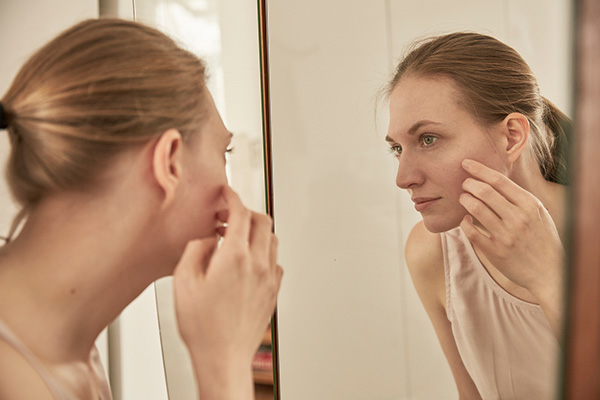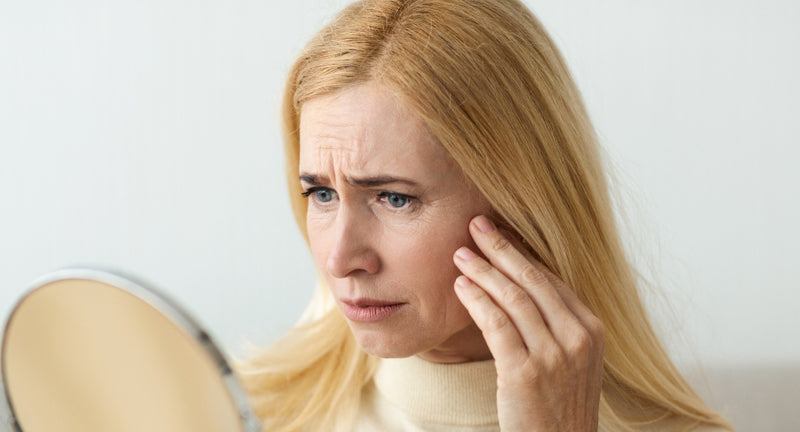What is Scalp Psoriasis? A Shocking and Terrific Look
Many beauticians often encounter clients who come in distressed about their skin condition. One such condition is scalp psoriasis.
This article will delve into what scalp psoriasis is, its symptoms, treatments, and life-changing tips to help manage this remarkable condition. If you're a beautician, understanding this common skin issue can enable you to provide better care for your clients.

Understanding Scalp Psoriasis
Scalp psoriasis is a chronic autoimmune disorder characterized by red, scaly patches on the scalp. It is often part of a larger skin condition known as psoriasis, which can affect other areas of the body as well. This condition occurs when the immune system mistakenly speeds up the production of skin cells, resulting in an overproduction that leads to buildup and flaking.
Clients may often describe their symptoms as itchy, painful, and even embarrassing. It can also be confused with other scalp conditions, which makes it crucial for beauticians to have a sound knowledge of its symptoms and treatment options.
Common Symptoms of Scalp Psoriasis
The noticeable signs of scalp psoriasis include:
- Red patches covered with thick, silvery scales
- Dry, itchy scalp
- Flaking or shedding of skin that may fall onto the shoulders
- Burning or soreness in severe cases
Understanding these symptoms is vital for beauticians, as they may need to alter their hair care services when working with clients who have this condition. Always approach this delicate situation with sensitivity.
Types of Scalp Psoriasis
While scalp psoriasis can manifest in various forms, the two most common types include:
1. Plaque Psoriasis
This is the most prevalent form, appearing as raised, inflamed areas of skin covered by silvery-white scales. For more information on plaque psoriasis, you can visit plaque psoriasis where you can learn about its characteristics and treatment.
2. Guttate Psoriasis
A less common version that generally starts in childhood or young adulthood. It appears as small, drop-shaped spots across the body, including the scalp.
Treatment Options for Scalp Psoriasis
Treatment for scalp psoriasis may vary based on the severity of symptoms. Here are some commonly recommended treatments:
- Topical Treatments: Creams and ointments containing corticosteroids and other active ingredients can help reduce inflammation and flaking.
- Phototherapy: Exposure to ultraviolet light under medical supervision can help manage psoriasis outbreaks.
- Oral Medications: In severe cases, systemic medications may be necessary to reduce symptoms throughout the body.
Life-Changing Tips for Managing Scalp Psoriasis
As a beautician, here are some tips you can offer your clients for managing their scalp psoriasis effectively:
- Gentle Cleansing: Recommend mild, sulfate-free shampoos to avoid irritating the scalp.
- Moisturizing: Encourage there to use a conditioner or scalp oil to keep the skin hydrated.
- Avoiding Triggers: Identify and help clients avoid triggers like stress, certain foods, or smoking that can worsen their condition.
- Learn About Treatments: Stay updated on the latest treatments and technologies. For example, read this life-changing article on the latest psoriasis treatments.
Consultation with a Dermatologist
Though beauticians play a significant role in managing the appearance of psoriasis, it is essential for clients to consult a dermatologist for a tailored treatment plan. They can provide effective medication and therapy strategies that go beyond the beauty industry.

Frequently Asked Questions (FAQs)
1. Can scalp psoriasis be cured?
While there is currently no cure for scalp psoriasis, symptoms can be effectively managed with the right treatment.
2. How can I improve my scalp condition?
Encouraging a healthy lifestyle, including stress management and proper skin care, can significantly improve scalp health.
3. Is scalp psoriasis contagious?
No, scalp psoriasis is not contagious; it is an autoimmune condition caused by genetic and environmental factors.
For more on the symptoms of psoriasis, consider checking this resource to enhance your understanding.
Staying informed and empathetic towards clients with scalp psoriasis can create a more supportive environment and show your commitment to their well-being.

